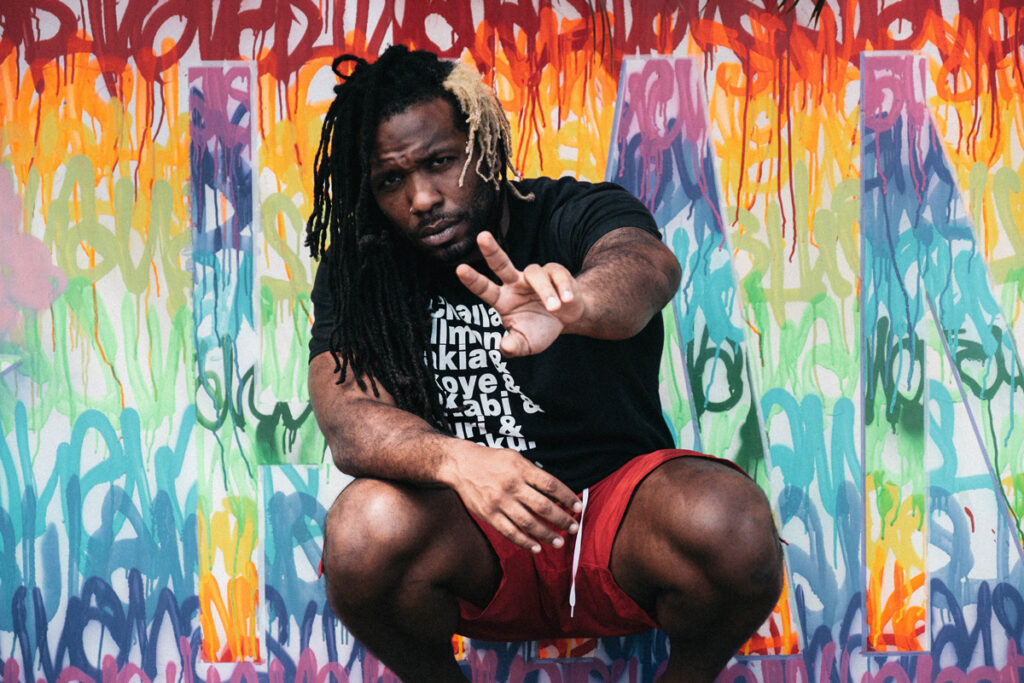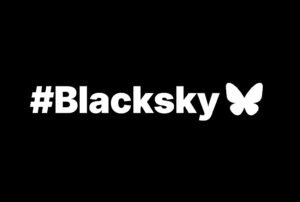
This is the final installment of the series, Protecting Protest: We Need All Hands on Deck, published in partnership with the Protect Dissent Network. Writers examine how the constitutional right to protest is being threatened and why we must fight to protect it. Analyzing what anti-protest legislation signals for the future of the country and our democracy, contributors address what we must do to defeat these attempts to repress our voices and reverse progress.
Every pride month, I’m asked to reflect on my queerness, which I cannot separate from my Blackness. We’ve just left June behind: two years on from the murder of George Floyd and the subsequent uprising in defense of Black lives, the second Juneteenth since the anniversary of Black people’s freedom from enslavement became recognized as a federal holiday, and seven years on from the Supreme Court ruling to uphold marriage equality.
I was born the year of the 1969 Stonewall uprising in New York City—the event which led to observing Pride in June. I wouldn’t be who I am without the Black, queer, and trans artists and activists who came before me. They imagined a world we didn’t yet live in, and their vision, for me, made the unthinkable real. Though recent Pride celebrations can look more like parties and capitalist appropriation, Stonewall was an act of direct resistance to police violence—the same exact issue at the center of the 2020 national uprisings against racist policing and brutality.
Though recent Pride celebrations can look more like parties and capitalist appropriation, Stonewall was an act of direct resistance to police violence—the same exact issue at the center of the 2020 national uprisings.
In the 1960s, police and public officials sought to make it impossible for leaders like Marsha P. Johnson and Sylvia Rivera to live lives free from violence and harm. Police regularly raided bars and other places where LGBTQ+ community members gathered. On June 28, 1969, the Black, Indigenous, Latinx, queer, and trans people present at Stonewall Inn in New York said enough was enough. What started as a protest turned into a riot when police responded with force, arresting, injuring, and hospitalizing many community members. These courageous acts of protest catalyzed a national movement of LGBTQ+ leaders fighting for the right to live their most authentic lives and whose efforts have allowed me to do the same. For Black and queer people today, ensuring the right to protest continues to be a matter of survival.
More than a half century after Stonewall, Florida Governor DeSantis signed the dangerous “Don’t Say Gay” bill into law in late March. Effective July 1, HB 1557/SB 1834 makes it illegal for teachers to educate their students about gender identity or sexual orientation from kindergarten through third grade. The bill includes onerous parental notification requirements that mandate schools to tell parents if a student accesses health or other support services related to their gender or sexuality in school, even if parental notification is unsafe for the child. A similarly repressive bill that also took effect July 1, HB 7/SB 148—dubbed the “Stop WOKE Act” by its supporters—aims to restrict how concepts around race can be addressed and taught in workplaces and schools. As a Black, queer person living in the state, witnessing Florida’s state politics this year has been a painful reminder that hard-fought civil rights victories of previous decades will always need defending from those who seek to silence us.
The same Florida legislators and conservative groups who want to keep LGBTQ+ people from living free, authentic lives also secured the passage of last year’s anti-protest bill. HB 1 criminalizes protesting by increasing fines and jail time while also eliminating civil liability for those who cause protestors harm, including people who drive their cars into protests, killing or injuring demonstrators. These legislators know that suppressing dissent makes it easier to enact legislation like Don’t Say Gay. After legislators voted on this hateful bill, Floridian students staged walkouts, demonstrated at the State Capitol, and sparked national protests in solidarity with LGBTQ+ communities. HB 1 represents an attempt to prevent communities from making their voices heard and holding lawmakers accountable.
We must work to ensure that the next generation does not have to fight the same struggles for rights and liberation that began at Stonewall.
With sections of the anti-protest law now in effect in Florida, lawmakers have crafted themselves a weapon with which to silence the LGBTQ+ youth who continue to protest the Don’t Say Gay bill. The combined impact of “Don’t Say Gay,” banned books, and attempts to prevent students from being taught our nation’s long history of struggles for social and racial justice could have a chilling effect on what young people believe is possible for their lives.
If our communities are told by lawmakers that we do not have the right to exist as we are—and on top of that, if lawmakers take away our ability to speak out against the trampling of our inalienable rights—where does that leave us? We must work to ensure that the next generation does not have to fight the same struggles for rights and liberation that began at Stonewall.
Sign up for our free newsletters
Subscribe to NPQ's newsletters to have our top stories delivered directly to your inbox.
By signing up, you agree to our privacy policy and terms of use, and to receive messages from NPQ and our partners.
That’s the troubling, dual impact of anti-LGBTQ+ and anti-protest bills: the rights that our trans and queer elders fought for are exactly that—rights, not gifts or special privileges. For folks who look and live like me, they are a matter of life and death. In its response to the Don’t Say Gay bill, The Trevor Project highlighted that LGBTQ+ youth who access queer-affirming resources or education at school are 23 percent less likely to report a suicide attempt.
Audre Lorde said it so clearly: “Your silence will not protect you.” That’s why I’m raising my voice about what’s happening in Florida and joining with national groups like PEN America and the Protect Dissent Network to ensure that me and my community are not erased. I owe a debt to my ancestors that I am working to pay back by doing what I can to ensure that queer and trans youth of color continue to access the ideas, books, and histories that will make it just a little more possible for them to know themselves, believe in themselves, and thrive.
Earlier this year, I accepted an invitation to serve as co-chair of the PEN America Miami/South Florida chapter because few things are more important to me than defending our collective right to express our views and values, including through protest and dissent. In Florida, PEN America is carving out space for young artists and writers—particularly youth of color—to authentically express themselves through words and other forms of expression in their communities and beyond. We are working with young people in Miami and across the state to educate them about media literacy and to share the history of writers who have defended free expression.
For example, PEN America Miami/South Florida has partnered with local colleges to provide students an overview of the broad range of issues related to free expression at “both the domestic and international levels, covering the First Amendment and free expression limitations established by the Supreme Court, as well as the history of free expression as a human right, and other modern issues related to the Internet, protest, political dissent, and freedom of the press.” We are also introducing youth and community members to contemporary writers who have seen their books banned because their words and ideas challenge the status quo.
Threats to the autonomy and liberation of LGBTQ+ people and other marginalized communities are pervasive—and dissent and protest will be critical in the fight.
Today, it is vital to work and stand in solidarity with young people and queer communities, especially as trans and queer youth are being targeted across the country through a confluence of anti-LGBTQ+, anti-protest, and similarly repressive bills introduced in nearly all 50 states.
With the Supreme Court’s decision to overturn Roe v. Wade—and Justice Clarence Thomas’s concurring opinion that the Court also ought to reconsider cases upholding rights to contraception and same-sex marriage—it is clear we have big fights ahead to stop lawmakers and justices who seek to silence us in order to control our bodies and choices. We can no longer take our progress since Stonewall, the March on Washington, or any earlier civil rights victories as a given. Threats to the autonomy and liberation of LGBTQ+ people and other marginalized communities are pervasive—and dissent and protest will be critical in the fight.
This is why celebrating Pride must also be about remembering that Stonewall was never a parade; it was a protest. We must not erase that history. And we must keep writing the history of our own lives to make it possible for each and every one of us to live authentically—and be free.









